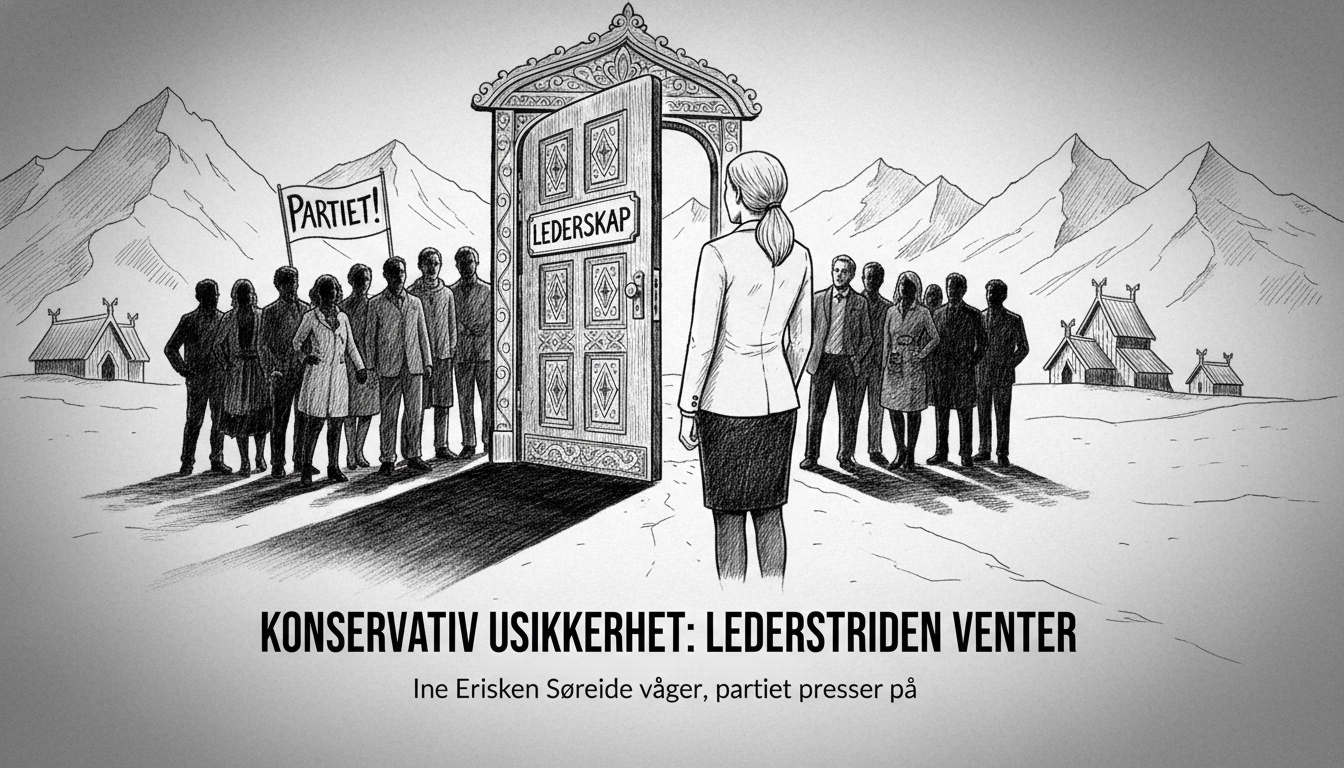Ine Eriksen Søreide remains the clear favorite to become Norway's Conservative Party leader. Yet she appears uncertain about taking the role. Party officials express growing concern over her hesitation.
Birgitte Gulla Løken, the Conservative mayor of Larvik, noted the visible hesitation. Being party leader demands complete motivation, she said. Many view Søreide as highly capable and the obvious choice. But her reluctance has become noticeable.
Løken cannot determine the reason behind the uncertainty. It might involve hesitation or ongoing discussions with the selection committee. Clarifications about potential leadership team members could be a factor. The party currently exists in a vacuum, she added. A resolution needs to happen as quickly as possible.
John Peter Hernes, Conservative leader in Stavanger, urged the favorite candidate to declare her position. He supports all who express desire for the role, enabling broad debate about the new leadership. While Søreide remains his preferred candidate, her clarification is crucial. If she declines, that decision must be respected. This matter should resolve within days, he emphasized. A prolonged process weakens the party when the frontrunner remains undecided.
Buskerud Conservatives have clearly stated their preference for Sandra Bruflot in leadership. Their county leader Kristin Ørmen Johnsen confirmed Bruflot's weekend interview with the selection committee. Bruflot expressed willingness to become deputy leader. The county considers her essential for any leadership trio. They also want her to continue as women's policy spokesperson with positions in key party committees.
Johnsen acknowledged various candidates submitted by local branches for the leader position. She understands Søreide's need for decision time. People grow very impatient, but this represents a major life decision. Becoming party leader puts your entire life on hold. Questions about potential collaborators also matter. Taking reflection time seems healthy, Johnsen noted. She believes Søreide feels decision pressure and expects resolution soon.
The complete leadership puzzle depends on Søreide's choice, Johnsen pointed out. Geography and gender balance require consideration. The entire leadership trio cannot come solely from Viken and Oslo regions.
Innlandet County saw 56% support Søreide as leadership candidate, with Peter Frølich second at 17%. County leader Hanne Alstrup Velure understands Søreide's uncertainty. She recognizes the need for thorough consideration. Søreide likely focuses strategically on potential team members and selection committee perspectives. Velure emphasized that entire leadership matters now, not just the top position. Former leader Erna Solberg maintained a very distinct style that served the party well for years. Future leadership will likely operate more as a team across all parties.
Half the county board also wants former Young Conservatives leader Ola Svenneby as deputy leader. Velure described him as politically astute and courageous in tough debates. His background balances rural and urban district understanding.
Northern representation concerns Nina Merethe Dons-Hansen, deputy leader in Troms Conservatives. The party needs broader national relevance as a people's party, she argued. Leadership should reflect nationwide composition. They support Troms representative Erlend Svardal Bøe for deputy leader. Their leader preference varies but depends on the complete leadership combination.
Finnmark and Telemark counties will submit their input later Monday. Telemark's deputy leader Bent Frode Bystrøm confirmed their Monday evening meeting about the matter.
The Conservative Party's communications chief confirmed Søreide reviewed these developments but declined current comment. He referenced Søreide's weekend statement following her selection committee discussion. She said then that no final decision existed about her candidacy. She expressed love for the party and its members, considering it strength that potential candidates carefully assess their contributions and the party's future direction. Regardless, they will build a strong team with many good candidates available.
The hesitation creates practical challenges for party organization. Potential candidates remain in limbo while the frontrunner deliberates. This situation highlights the personal sacrifices required for political leadership in Norway's consensus-driven system.

